- Home
- Linda Castillo
Gone Missing (Kate Burkholder 4) kb-4 Page 6
Gone Missing (Kate Burkholder 4) kb-4 Read online
Page 6
I think of Annie King and I wonder if she was content living here with her family. If she found comfort in being part of this tight-knit community. Or was she like me? Perpetually discontent and pining for things she could never have. I wonder where she is at this very moment. If she’s frightened and wishing she was back here with her brothers and sisters and the monotony of farm life. I wonder if years from now she’ll look back and, like me, wish she’d done things differently.
“Looks like they’ve got company.” Tomasetti’s voice snaps me out of my fugue.
Two Amish men in blue work shirts, straw hats, and dark trousers with suspenders stand at the barn door, watching us. “They’re probably neighbors,” I tell him. “Here to help with the search or care for the livestock while the family deals with this.”
I follow his gaze. A few yards away, two Amish girls are trying to wrestle a large dog into a beat-up washtub. The girls are about ten years old. They’re wearing plain green dresses, their mouse brown hair pulled into buns at their napes. Their feet are bare and dirty, and the dresses haven’t fared much better. The simplicity and innocence of the sight makes me smile.
All children are innocent, but Amish children possess a particular kind of innocence. They believe the world is a good place, that their parents never make mistakes, that everyone they meet is their friend, and that if you pray hard enough, God will answer your prayers. It’s particularly shattering for an Amish child when she realizes none of those things are true.
Tomasetti and I watch the girls for a moment, each of us caught in our thoughts. That’s when it strikes me that these girls are about the same age his own would have been had their lives not been cut short by a career criminal who thought he’d make an example of a cop who crossed him. That was three years ago, and I know Tomasetti is still clawing his way out of that bottomless pit of despair. Most days, I think, he succeeds. But sometimes when I look into his eyes, I see the dark place in which he resides.
He cuts me a sideways look. “I think the dog is going to win.”
“My money’s on the girls.” I smile at him.
“Are you telling me I shouldn’t underestimate the determination of an Amish girl?”
“Especially when she’s got her sister to help her. Dog doesn’t stand a chance. One way or another, he’s going to get that bath.”
He parks adjacent to a rail fence next to the sheriff’s cruiser and kills the engine. Neither of us speaks as we take the sidewalk to the porch and wait for Sheriff Goddard.
“Damn, it’s humid.” Before he can knock, the door swings open. I find myself looking down at a little boy whose head comes up to about waist level. He’s blond-haired and blue-eyed, with blunt-cut bangs that are crooked from a recent trim. His small nose is covered with a smattering of freckles.
“Hello there, little guy,” Sheriff Goddard says. “Is your mom or dad home?”
The little boy squeals and runs back into the house.
“You’ve got a way with kids,” Tomasetti says.
The sheriff glances sideways at us. “Same situation with women.” He looks at me. “No offense.”
I withhold a smile. “None taken.”
He’s barely gotten the words out when an Amish man enters the mudroom and crosses to the door. He’s tall—well over six feet—with muscled shoulders and the beginnings of a paunch, divulging the fact that, despite his fitness, he’s a well-fed man. He’s blond and has a brown beard that reaches halfway down his belly, telling me he’s married. I guess him to be in his mid-forties. Dressed in black trousers, suspenders, and a vest over a white shirt, he is an imposing figure.
His eyes are the color of onyx beneath heavy brows, and they take in our presence with no emotion. “Can I help you?” he asks, but he makes no move to invite us inside.
“Afternoon, Mr. King,” Sheriff Goddard begins. “We’d like to talk to you about your daughter.”
The Amish man’s expression remains impassive as his eyes move from Goddard to Tomasetti and me.
Goddard introduces us, letting him know which agency we represent. “They’re here to help us find Annie, Mr. King. We were wondering if you and your wife could answer a few questions.”
King’s eyes narrow on me. I’m not sure if he recognized my last name as a common Amish one or if he’s merely curious because I’m from Holmes County. He doesn’t ask, turning his attention to Goddard. “Do you have news of her?” he asks.
“We think we found her bag,” the sheriff tells him.
A quiver runs through King, as if hope and terror are waging war inside him. “Where?”
“A couple of miles from the vegetable stand,” Goddard says. “Have you had any luck on your end?”
The man’s shoulders fall forward and he shakes his head. “No,” he says, and opens the door.
We enter a mudroom with a scuffed plank floor and two bare windows, which usher in plenty of light. I see six straw hats hanging neatly on wooden dowels set into the wall. Muddy work boots are lined up on a homemade rug. An ancient wringer washing machine that smells of soap and mildew has been shoved into a corner. A basket filled with clothespins sits on the floor next to the machine.
King leads us through a doorway and into a large, well-used kitchen. The aromas of bread, seared meat, and kerosene greet me, and the same sense of déjà vu from earlier grips me. Light filters in from a single window over the sink, but it’s not enough to cut the shadows. Dual lanterns glow yellow from atop a rectangular table covered with a blue-and-white-checkered cloth. Scraped-clean plates and a smattering of flatware and a few drinking glasses litter the table’s surface, and I realize that though it’s not yet four o’clock, this family has just finished dinner. That’s when I notice the one place setting that hasn’t been touched. Annie’s, I realize. It’s a symbol of their hope that she will return, of their faith that God will bring her back to them and their prayers will be answered. It’s been a long time since I put that kind of faith in anything. It makes me sad to think that this family might soon realize that some prayers go unanswered.
An Amish girl barely into her teens gathers dishes from the table and carries them to the sink, where an Amish woman wearing a dark blue dress, white apron, and a gauzy white kapp has her hands immersed in soapy water, her head bowed. She’s so embroiled in the task, or perhaps her thoughts, she doesn’t notice us until her husband speaks.
“Mir hen Englischer bsuch ghadde,” he says, meaning “We have English visitors.”
The woman turns, her mouth open in surprise. I guess her to be at least a decade younger than her husband. I suspect that at one time she was beautiful, but there’s a hollowed-out countenance to her appearance. The look of the bereaved. I doubt she’s eaten or slept or had a moment’s peace of mind since her daughter went missing. Despite her faith, worry for her child’s well-being has begun eating away at her like some flesh-eating bacteria that can’t be stopped.
“I’m Kate Burkholder,” I tell her. “We’re here to help you find Annie.” Before even realizing I’m going to move, I’m across the kitchen and extending my hand. I sense the collective attention of Goddard and Tomasetti on me, and I address her in Pennsylvania Dutch. “Can we sit and talk awhile?”
The woman blinks at me as if I’ve shocked her. Out of sheer politeness, she raises her hand to mine. It’s wet and limp and cold, and I find myself wanting to warm it. Her eyes sweep to her husband, asking for his permission to speak with me, I realize, and I try not to be annoyed with her. His gaze levels on me. I stare back, not missing the hardness of his expression or the mistrust in his eyes.
He gives her a minute nod.
“I’m Edna.” She raises her eyes to mine. “Sitz dich anne un bleib e weil.” Sit yourself down and stay a while. “I’ll make coffee.”
CHAPTER 5
Ten minutes later, Edna and Levi King, Tomasetti, Goddard, and I are sitting at the big kitchen table with steaming mugs of coffee in front of us. I can hear the children playing in another par
t of the house; a dog barking from somewhere nearby; the jaay-jaay screech of a blue jay in the maple tree outside; the whistle of a train in the distance. The mood is somber, laced with a foreboding so thick, it’s tangible. I find myself hoping that none of us will have to tell this family that their little girl won’t be coming home.
Goddard pulls the satchel that was found at the scene from an evidence bag and presents it to the parents. “We found this earlier. We’re wondering if it’s Annie’s.”
Edna stares at the bag for a moment, then takes it from him, her mouth quivering. “It is hers.” She studies it, turning it over in her hands and appearing to search every inch of the fabric, as if the satchel holds the answers we all so desperately need. She raises her gaze, her eyes darting from the sheriff to Tomasetti and then to me. “Where did you find this?”
The sheriff answers. “Out on County Road 7.”
I’m relieved when he doesn’t mention the blood. Until it’s identified as human—or confirmed as Annie’s—there’s no need to torture this family with information that may not be relevant.
“We’ve been praying for her safe return.” Closing her eyes, Edna presses the bag to her chest. “Perhaps this is a sign she will be coming back to us.” Her face collapses, but she doesn’t make a sound. “We miss her,” she whispers. “And we’re worried. We want her back.”
Levi sets his gaze on the sheriff. “Was there any other sign of her?”
The sheriff shakes his head. “We’re going over the scene with a fine-tooth comb.”
A sound to my right draws my attention. I look up and see a little Amish girl, half of her hidden behind the doorway, peeking at us with one eye. She’s wearing a blue dress that looks like a hand-me-down. Her bare feet are slender, tanned, and dirty.
Levi raises his hand and points. “Ruthie, go help your sister in the garden.” His voice is firm but holds a distinctly sad note, which tells me the words have less to do with the garden than with his not wanting her to bear witness to this discussion.
The girl eyes us a moment longer, then darts away, her bare feet slapping against the oak-plank floor.
“How many children do you have, Mrs. King?” Tomasetti asks.
“Eight,” Edna tells him. “God blessed us with four girls and four boys.”
As inconspicuously as possible, I pull out my note pad. “How old are they?”
“David is our youngest. He’s three.” She chokes out a laugh. “I think you met him when you came to the door. He’s shy with strangers, especially the Englischers, you know. Annie is the oldest.” Her voice falters, but she takes a moment, gathers herself. “She’s fifteen. . . . Lydia is thirteen. . . .” She lets her words trail off, as if there are too many children to name. “They’re worried about their sister.”
“When did you realize Annie was missing?” I ask.
The woman casts a glance at her husband, then looks down at her hands. They’re red and chapped, the nails bitten to the quick. “Yesterday afternoon. We sent her out for corn and tomatoes. She gets restless, you know. She’s at that age.”
“What time was that?”
“Before supper.” She glances absently at the antique mantel clock on a shelf by the door. “Two o’clock, I think.”
“Was she on foot?”
“Yes. She enjoys the walking.”
“When did you become worried?”
She looks at her husband, as if the answer is too much for her to bear, and he answers for her. “We began to worry when she didn’t make it home in time for the before-meal prayer,” he says.
“That Annie likes to eat.” Edna’s laugh comes out sounding more like a sob.
“What did you do?” Tomasetti asks.
“I went looking for her, of course,” Levi responds.
“Alone?”
“My son and I took the buggy.” Levi sighs and shakes his head. “We took the route she would have taken, but there was no sign of her. We talked to Amos Yoder at the vegetable stand, and he said she had been there earlier and she seemed fine.”
I look at Goddard. “Is the place where we found the satchel between here and the vegetable stand?”
Goddard shakes his head. “No.”
No one says it, but that means Annie either took a different route home or got into a vehicle with someone. “What did you do next?” I ask Levi.
“I took the buggy to the bishop’s house. He has a phone. We put together a search party.” A sigh slides between his lips, as if he’s staving off an emotion he can’t afford to feel. “All of the able-bodied men and boys came out to help—some on horse back, some in buggies. Our English neighbors helped in their cars.”
“Why did you wait so long before calling the police?” Goddard asks gently.
“The Ordnung forbids our associating . . .” His words trail off. It’s as if he realizes a missing child is the one time when there’s no place for sectarian beliefs. “I thought we would find her before now.” The words come out in a harsh whisper. “If I had done over . . .”
Goddard nods understandingly.
“She didn’t have anything to eat last night.” Edna’s voice is barely discernible. “She didn’t have a bed to sleep in.”
I choose my next words carefully. “Mrs. King, you mentioned Annie gets restless. Is there a possibility she didn’t come home on purpose? Maybe there was an argument? Or she was upset about something?”
Levi shakes his head adamantly. “No. She is a good girl. She would not worry us over something like that.”
Edna remains silent, not responding. Not even with a shake of her head. There are times when silence has a voice all its own. I mentally file the information away for later, wondering if she’s privy to something her husband is not. Sometimes daughters confide in their mothers. . . .
“Have you had any problems with Annie?” I ask gently. “Has she broken the rules? Has she seemed unhappy about anything recently?”
The look that passes between them is so subtle, I almost miss it. But I know there’s something there, some scrap of information they don’t want to reveal. “We’re not here to judge you,” I tell them. “Or her.”
“We just want to find your daughter,” Tomasetti adds.
When neither of them speaks, I continue. “Look, I know that sometimes teenagers make mistakes. Even Amish teenagers.” I feel Tomasetti and Goddard watching me, but I don’t look away from Edna. “Even good girls,” I finish in Pennsylvania Dutch, purposefully excluding the two men.
After a moment, Levi nods. “Annie is very strong-willed.”
“She’s a good girl,” Edna says quickly.
An alarm sounds in the back of my brain. Maybe it’s because I know that when parents feel the need to emphasize the goodness of their children, there’s usually a reason. Like maybe the kid isn’t quite as well-behaved as they’d like everyone to believe, and as they desperately want to believe themselves.
After a moment, Edna lowers her face into shaking hands. “She is a good girl.”
The last thing I want to do is alienate them; at the moment, they are our best source of information. But I know if I don’t push, I won’t get what I need, and that is the truth—all of it.
I let the silence ride, giving them some time; then I return my attention to Edna. “Have you spoken to Annie’s friends?”
Edna raises her head. “She keeps to herself mostly.”
“Does she have a best friend?” I press her, knowing that whether you’re Amish or English, if you’re a teenage girl, you have a confidante.
Edna perks up. “She’s been friendly with the Stutz girl. They went to a singing last week after worship. Amy is her name.”
I write down the name and turn my attention to the sheriff. “Do you know where the Stutz family lives?”
He nods. “Just down the road.”
I go back to Edna. “Is there anything else you can think of that might help us find her?”
When the woman looks away, I turn my attention to Levi
. The Amish man stares down at the tabletop. He knows something, too; I see it in the slump of his shoulders, the cord of tension in his neck. I’m sure Tomasetti and Goddard sense it as well, and the only thing we can do at this point is wait them out and hope they open up.
For a full minute, the only sounds come from the hiss of the lantern’s wick and the ticking of the mantel clock on the shelf. Then Levi raises his gaze to mine. “She has been associating with some Englischers.”
Edna jerks her head his way. “Levi . . .”
“What are their names?” I ask quickly.
“We do not know.”
“Does she have a boyfriend?”
The Amish couple exchange a look I recognize. A look I’ve seen before. One I understand all too well. One I saw in the eyes of my own parents. Shame. The need to secrete away the sins of their child. I know this because I was once that sinful child. This is the question they’ve been avoiding. The answer is one they don’t want to divulge. A reality they don’t want to acknowledge. Not even between them. Certainly not to us outsiders. But I also know it’s the reason we’ve been invited into this Amish home.
Levi tightens his lips as if against words he doesn’t want to utter. “We think the English boy was courting her.”
“Did Annie tell you that?”
The Amish man shakes his head. “Dan Beiler saw them together in town.”
“Do you know the boy’s name?”
“No.” He looks everywhere except into my eyes. “He has a car. She disappears sometimes and will not tell us where she’s been.”
“Do you know what kind of car?”
“We don’t know,” Levi spits out.
“She will not speak of him to us,” Edna says, choking out the words.

 A Hero to Hold
A Hero to Hold A Whisper in the Dark
A Whisper in the Dark After the Storm
After the Storm A Baby Before Dawn
A Baby Before Dawn Breaking Silence
Breaking Silence Gone Missing
Gone Missing Long Lost
Long Lost Midnight Run
Midnight Run The Dead Will Tell
The Dead Will Tell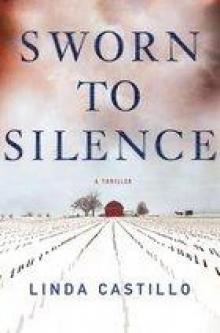 Sworn to Silence
Sworn to Silence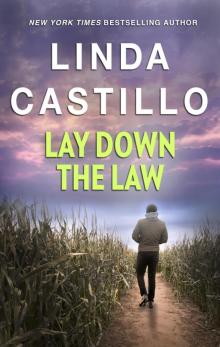 Lay Down the Law
Lay Down the Law Safe Before Dawn
Safe Before Dawn Depth Perception
Depth Perception Seeds of Deception
Seeds of Deception Operation: Midnight Guardian
Operation: Midnight Guardian The Perfect Victim
The Perfect Victim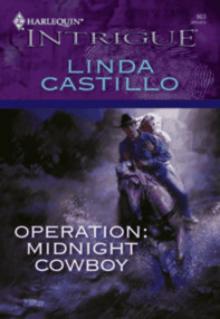 Operation: Midnight Tango
Operation: Midnight Tango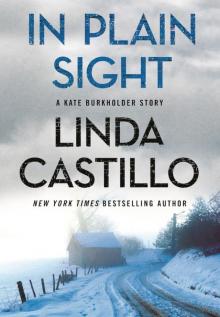 In Plain Sight (Kate Burkholder)
In Plain Sight (Kate Burkholder) Shamed
Shamed Fallen
Fallen Her Last Breath
Her Last Breath Remember the Night (Men in Blue)
Remember the Night (Men in Blue) Dead Reckoning
Dead Reckoning Cops and ... Lovers?
Cops and ... Lovers? The Pact
The Pact A Simple Murder
A Simple Murder Among the Wicked
Among the Wicked In the Dead of Night
In the Dead of Night Just a Little Bit Dangerous
Just a Little Bit Dangerous The Phoenix Encounter
The Phoenix Encounter In Dark Company
In Dark Company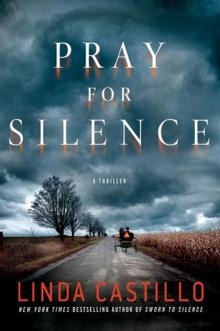 Pray for Silence
Pray for Silence Kate Burkholder 01-Sworn to Silence
Kate Burkholder 01-Sworn to Silence Remember the Night
Remember the Night Operation: Midnight Rendezvous
Operation: Midnight Rendezvous Operation: Midnight Escape
Operation: Midnight Escape The Dead Will Tell: A Kate Burkholder Novel
The Dead Will Tell: A Kate Burkholder Novel Seeds of Deception: A Kate Burkholder Short Story
Seeds of Deception: A Kate Burkholder Short Story Gone Missing (Kate Burkholder 4) kb-4
Gone Missing (Kate Burkholder 4) kb-4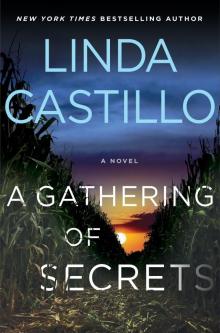 A Gathering of Secrets
A Gathering of Secrets Seeds of Deception: A Kate Burkholder Short Story (Kindle Single)
Seeds of Deception: A Kate Burkholder Short Story (Kindle Single)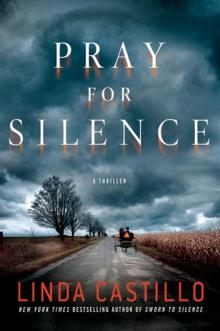 Pray for Silence kb-2
Pray for Silence kb-2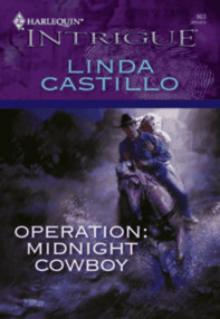 Operation: Midnight Cowboy
Operation: Midnight Cowboy In Dark Company_A Kate Burkholder Short Mystery
In Dark Company_A Kate Burkholder Short Mystery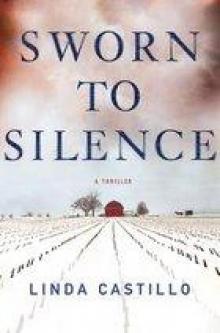 Sworn to Silence kb-1
Sworn to Silence kb-1 Her Last Breath: A Kate Burkholder Novel
Her Last Breath: A Kate Burkholder Novel Among the Wicked: A Kate Burkholder Novel
Among the Wicked: A Kate Burkholder Novel Breaking Silence kb-3
Breaking Silence kb-3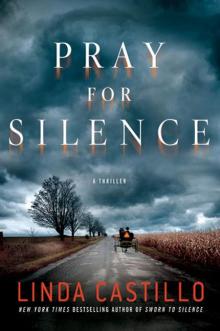 Kate Burkholder 2 - Pray for Silence
Kate Burkholder 2 - Pray for Silence Long Lost: A Kate Burkholder Short Story
Long Lost: A Kate Burkholder Short Story